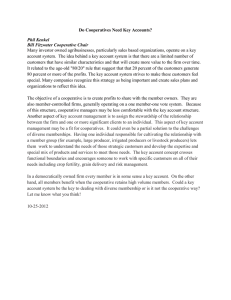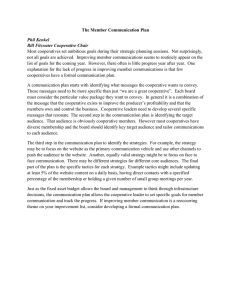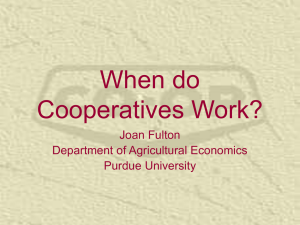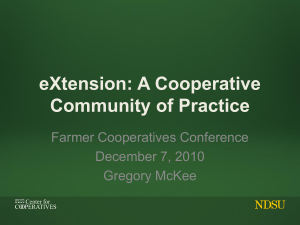Does Your Cooperative Support the Cooperative Economy? Phil Kenkel
advertisement
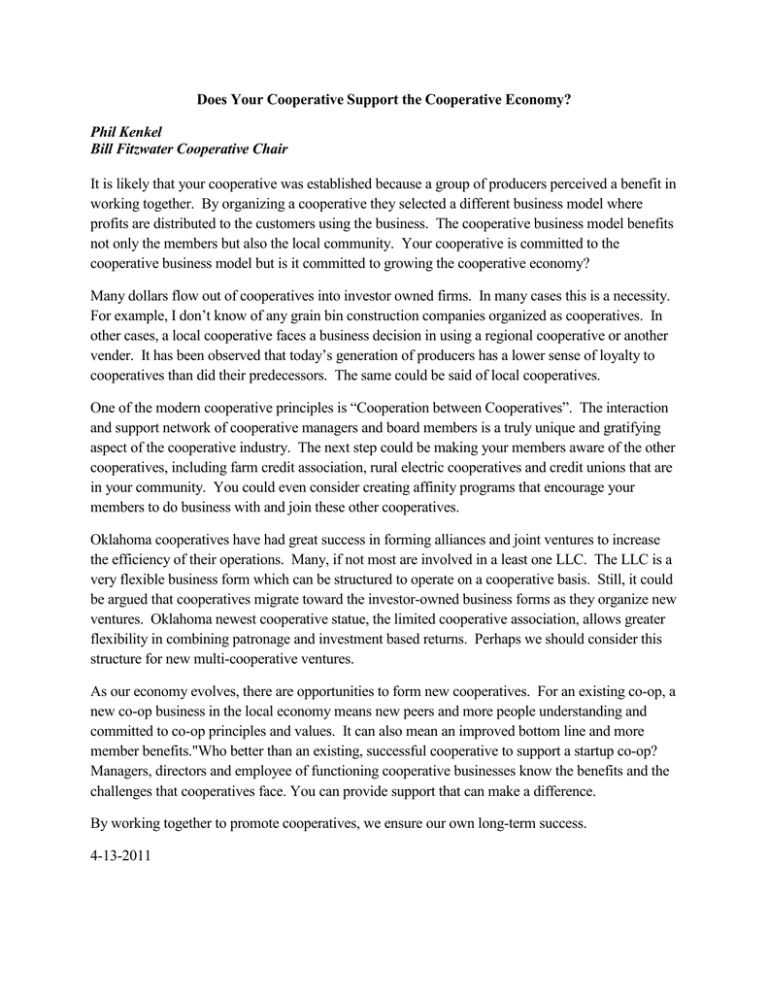
Does Your Cooperative Support the Cooperative Economy? Phil Kenkel Bill Fitzwater Cooperative Chair It is likely that your cooperative was established because a group of producers perceived a benefit in working together. By organizing a cooperative they selected a different business model where profits are distributed to the customers using the business. The cooperative business model benefits not only the members but also the local community. Your cooperative is committed to the cooperative business model but is it committed to growing the cooperative economy? Many dollars flow out of cooperatives into investor owned firms. In many cases this is a necessity. For example, I don’t know of any grain bin construction companies organized as cooperatives. In other cases, a local cooperative faces a business decision in using a regional cooperative or another vender. It has been observed that today’s generation of producers has a lower sense of loyalty to cooperatives than did their predecessors. The same could be said of local cooperatives. One of the modern cooperative principles is “Cooperation between Cooperatives”. The interaction and support network of cooperative managers and board members is a truly unique and gratifying aspect of the cooperative industry. The next step could be making your members aware of the other cooperatives, including farm credit association, rural electric cooperatives and credit unions that are in your community. You could even consider creating affinity programs that encourage your members to do business with and join these other cooperatives. Oklahoma cooperatives have had great success in forming alliances and joint ventures to increase the efficiency of their operations. Many, if not most are involved in a least one LLC. The LLC is a very flexible business form which can be structured to operate on a cooperative basis. Still, it could be argued that cooperatives migrate toward the investor-owned business forms as they organize new ventures. Oklahoma newest cooperative statue, the limited cooperative association, allows greater flexibility in combining patronage and investment based returns. Perhaps we should consider this structure for new multi-cooperative ventures. As our economy evolves, there are opportunities to form new cooperatives. For an existing co-op, a new co-op business in the local economy means new peers and more people understanding and committed to co-op principles and values. It can also mean an improved bottom line and more member benefits."Who better than an existing, successful cooperative to support a startup co-op? Managers, directors and employee of functioning cooperative businesses know the benefits and the challenges that cooperatives face. You can provide support that can make a difference. By working together to promote cooperatives, we ensure our own long-term success. 4-13-2011
